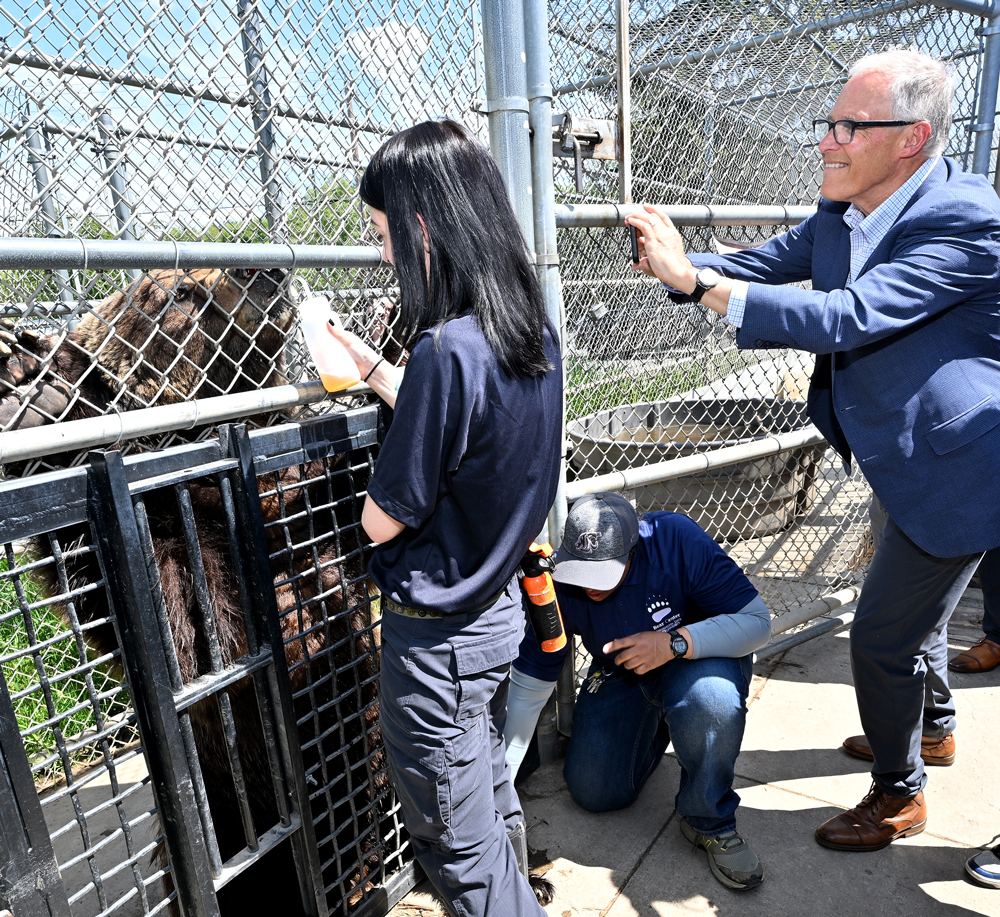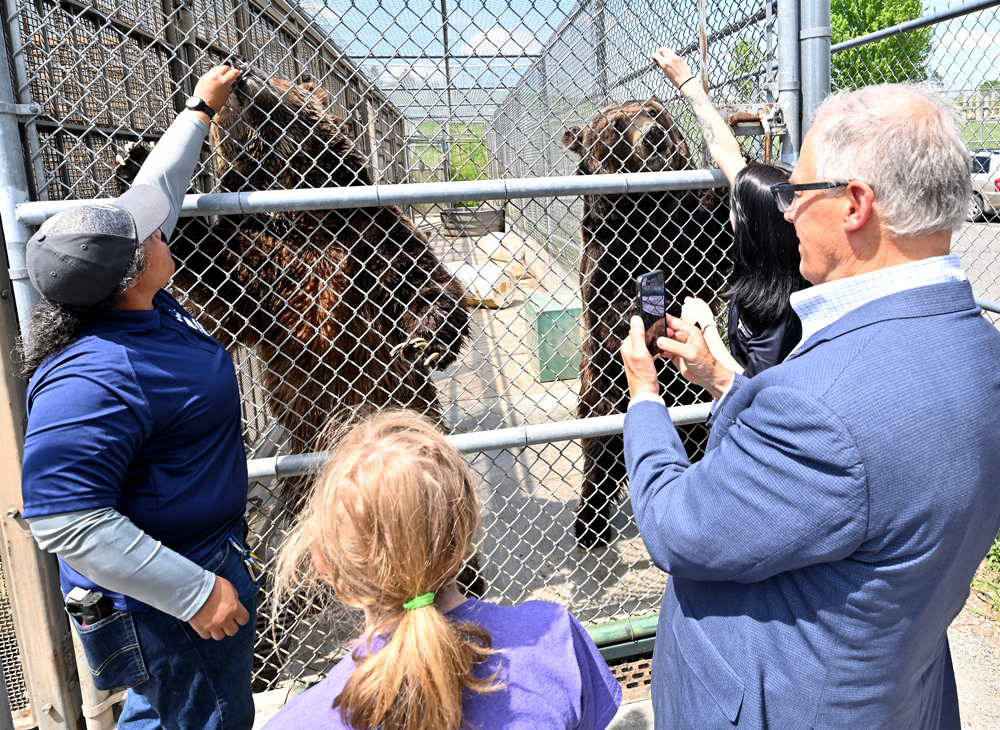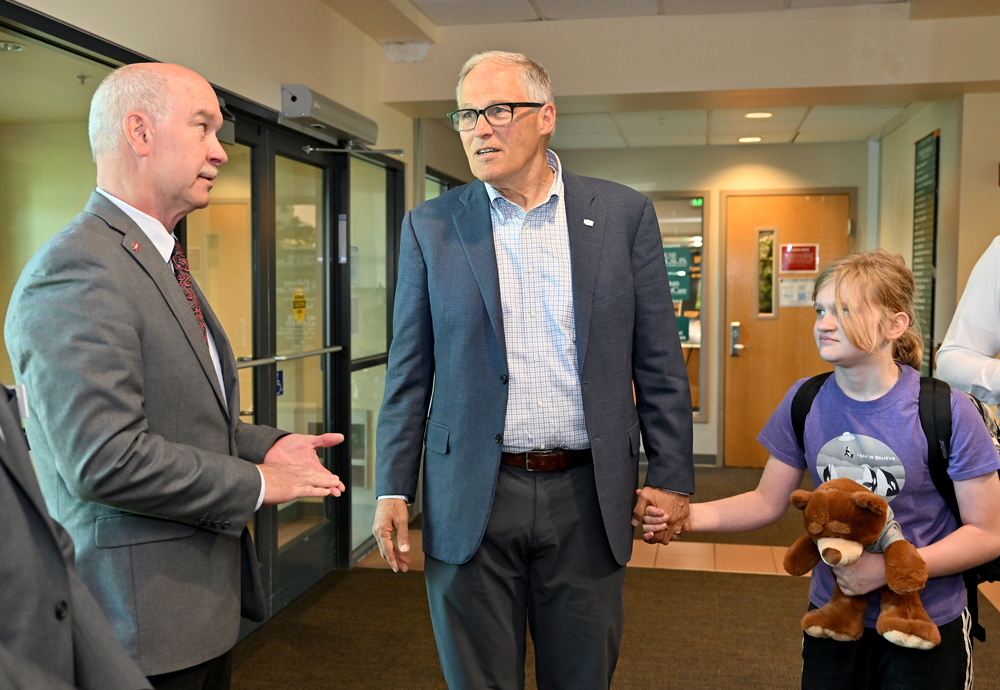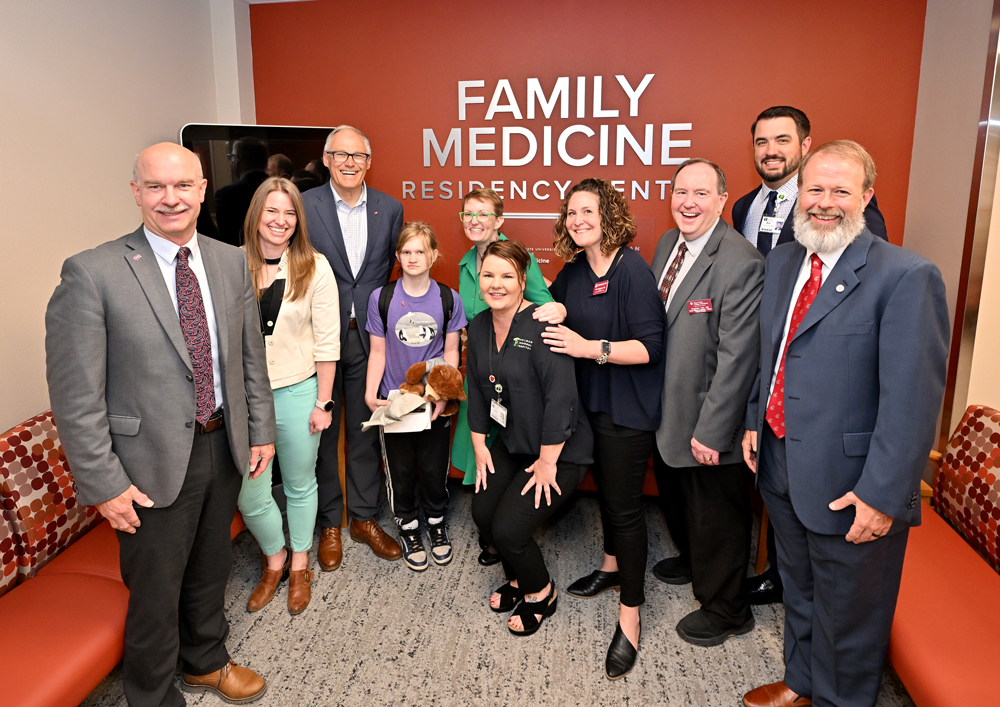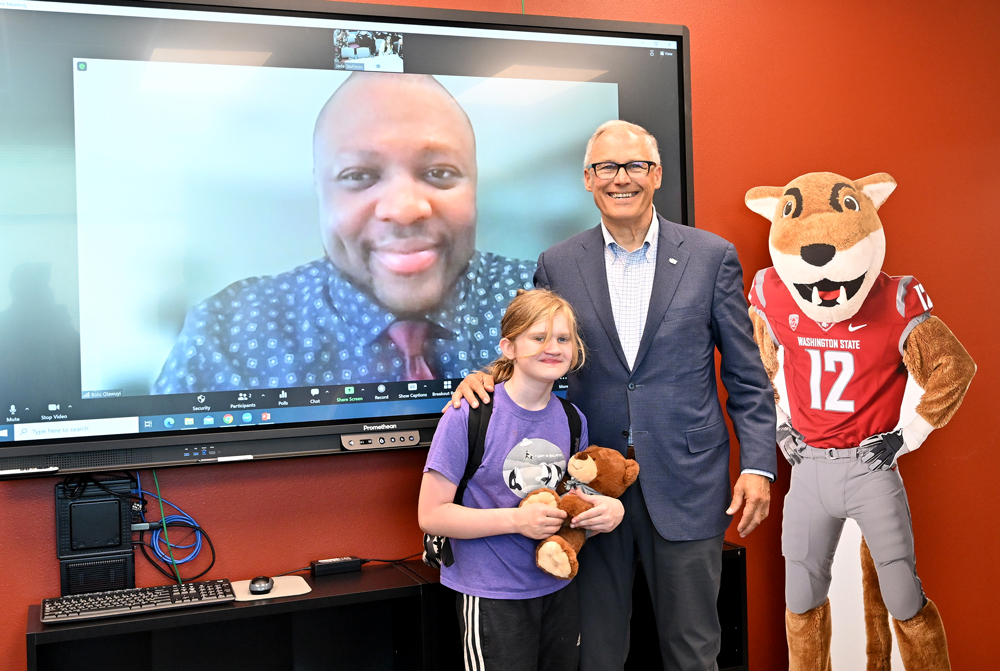Washington State Gov. Jay Inslee got a behind-the-scenes tour of the WSU Bear Research, Education, and Conservation Center as well as the new Family Medicine Residency program at Pullman Regional Hospital as part of his visit to the Palouse Thursday.
With granddaughter Zoe along for the trip, and eager to help feed the resident grizzlies, Inslee met with the Bear Center’s scientists and other staff to discuss their ongoing research. Of particular interest to the governor was research on the impacts of climate change on bears and their ability to find food reliably.
Bear Center Director of Research Charles Robbins also shared recent research on the ability of hibernating bears to reverse insulin resistance brought on by long periods of inactivity during hibernation, which has potential implications for our understanding of diabetes in humans.
“There is so much incredible research happening here at Washington State,” Inslee remarked as several adult grizzly bears worked off their afternoon meal meandering in one of the center’s nearby fields.
Earlier in the day, Inslee met with hospital and university officials at Pullman Regional Hospital about the importance of physician residency programs in rural healthcare settings. WSU Spokane Chancellor and Executive Vice President Daryll DeWald was among the university officials who greeted Inslee upon his arrival to Pullman Regional Hospital.
Residency programs like the one forged between Pullman Regional Hospital and WSU’s Elson S. Floyd College of Medicine simultaneously work to ensure access to high-quality healthcare and attract and retain doctors to communities in need.
These efforts are critical, particularly as Washington works to address the persistent shortage of doctors in rural communities statewide.
“We know there’s a nationwide shortage of physicians, and it’s really acute in rural communities,” Jade Stellmon, program administrator for the WSU Family Medicine Residency Program in Pullman, said. “Twenty percent of the population lives in rural communities, but only 9 percent of physicians practice in rural communities.”
The first cohort of WSU’s Family Medicine Residency Program is set to start this summer. One of those incoming residents, Dr. Bolu Olawuyi, spoke with Inslee via Zoom during the visit. His prior work with indigenous communities in rural Canada, the advantageous size of WSU’s program, and the opportunity to serve a community that genuinely made him feel welcome during his initial visit to Pullman led him to accept the residency position.
Asked by Inslee about the best ways doctors can work with patients struggling with conditions like obesity and depression, Dr. Olawuyi emphasized the importance of building a connection between patient and provider.
“Once you have that communication, you can start to break down barriers and build trust.” Dr. Olawuyi said.
Inslee also asked if the doctor had any advice for his granddaughter and Olawuyi spoke about the importance of determination and maintaining a positive outlook.
“First things first, you can be whatever you want to be in life with hard work and dedication,” Dr. Olawuyi said. “There are going to be lots of ups and a lot of downs, but so long as you do not give up, the sky is the limit.”
While in Pullman, Inslee also visited the Community Action Center, where WSU Pullman Chancellor Elizabeth Chilton shared the work of WSU’s Center for Civic Engagement in connecting faculty and students to outreach opportunities with the CAC.



